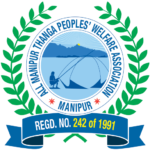The document titled “Insight into the Socio-economic Life of Fishers of Loktak Lake, Manipur-A Ramsar Site” provides an in-depth analysis of the socio-economic conditions of the fishing communities around Loktak Lake in Manipur, which is recognized under the Ramsar Convention as a wetland of international importance. Here is a comprehensive summary of the document:
Background and Importance of Loktak Lake
Loktak Lake is the largest fishery resource in Manipur, contributing significantly to the state’s fish production and supporting the livelihood of approximately 50,400 fishers. The lake, covering about 26,000 hectares, is vital for the socio-economic and cultural life of the people, accounting for more than 50% of the fish-producing area in the region.
Historical and Environmental Challenges
Historically, the lake contributed 60% to the state’s fish production, but this has declined to about 11% due to environmental and human-induced changes, including the construction of the Ithai Barrage in 1983, which blocked migratory routes for riverine fishes and altered the lake’s hydrological regime. This, along with siltation, eutrophication, and pollution, has adversely affected the fish populations and the overall health of the lake.
Socio-Economic Conditions of the Fishers
The study conducted detailed interviews with fishers to assess their socio-economic status:
- Demographics: A significant percentage of the fishers are over the age of 45, with most having received only secondary education or less. Most households are nuclear, with a majority living in kachcha (mud) houses, reflecting low economic status.
- Livelihood: Fishing is the primary occupation for most, and the community exhibits a deep dependence on the lake for their livelihood. Agricultural activities and livestock are secondary sources of income.
- Income and Expenditure: The average annual income of the fishers is relatively low, with significant expenditure on food, indicating a subsistence lifestyle. High levels of indebtedness and low savings rates further underline the economic challenges faced by the community.
- Social Participation: Participation in social organizations is minimal, reflecting the community’s focus on survival and daily sustenance rather than broader civic engagement.
Recommendations for Sustainable Management
The study emphasizes the need for a proper management plan for Loktak Lake that involves fishers in decision-making processes to ensure sustainable use of the lake’s resources. It highlights the necessity of addressing both the environmental challenges and the socio-economic needs of the fishing communities to improve their living standards and secure the ecological health of the lake.
Conclusion
The document concludes that a holistic approach involving environmental management and socio-economic enhancement is crucial for the sustainability of Loktak Lake and the well-being of its dependent communities. It calls for targeted interventions by government and non-governmental organizations to address the complex interplay of ecological and human factors affecting this vital wetland ecosystem
